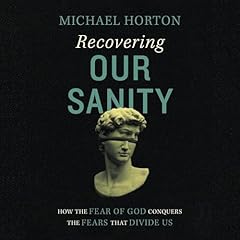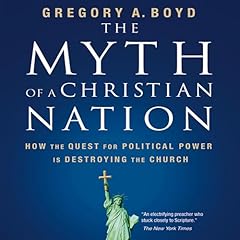
The Old Testament Case for Nonviolence
No se pudo agregar al carrito
Add to Cart failed.
Error al Agregar a Lista de Deseos.
Error al eliminar de la lista de deseos.
Error al añadir a tu biblioteca
Error al seguir el podcast
Error al dejar de seguir el podcast
 Exclusivo para miembros Prime: ¿Nuevo en Audible? Obtén 2 audiolibros gratis con tu prueba.
Exclusivo para miembros Prime: ¿Nuevo en Audible? Obtén 2 audiolibros gratis con tu prueba.Compra ahora por $18.91
-
Narrado por:
-
Eric Altheide
“Do not leave alive anything that breathes.” – God
The violence in the Old Testament is one of the biggest obstacles facing Christianity today.
Believers regularly identify it as one of the most confounding and challenging aspects of the entire Bible.
Unbelievers often cite it as one reason why they don’t believe.
A few prominent atheists even use it to publicly demean God’s character. Richard Dawkins claims the God of the Old Testament is “arguably the most unpleasant character in all fiction: jealous and proud of it; a petty, unjust, unforgiving control-freak; a vindictive, bloodthirsty ethnic cleanser; a misogynistic, homophobic, racist, infanticidal, genocidal, filicidal, pestilential, megalomaniacal, sadomasochistic, capriciously malevolent bully.”
In The Old Testament Case for Nonviolence, Fleischer cuts through the rhetoric and popular misperceptions to provide a compelling, scripturally based, and highly readable case for a good, just, and loving God, one who is not only not bloodthirsty but who actually hates violence.
If you have ever struggled to understand or appreciate what God was doing in the Old Testament, you will love this book. You might even discover a deity who is more beautiful than you have ever imagined.
“In the first six pages of his new book, Matthew Curtis Fleischer describes the problem of divine violence in the Old Testament as well as anyone ever has. In the following 200-plus pages, he offers Christians committed to biblical authority an intelligent and humane way of interpreting those passages, leading humanity from violence to nonviolence in the way of Jesus. Fleischer is an attorney, and he makes his case with clarity that would win over any unbiased jury.” (Brian D. McLaren, author of The Great Spiritual Migration)
©2017 Matthew Curtis Fleischer (P)2023 Matthew Curtis FleischerLos oyentes también disfrutaron:




















He also went to great lengths to explain that the biblical authors were actually blinded by their own sin and selfishness and often they misinterpreted what God was doing, remaking Him in their own image, such as attributing killing to Him when actually they were just misperceiving what was going on. Of course, if you were to examine specific biblical texts one by one, you would see this is a ludicrous claim because of all the direct quotes from God referring to Himself as a warrior, as punishing His enemies, etc. (Scripture clearly states it is God's prerogative to punish sin.) And yet at other places he says that maybe God actually was the author of some biblical violence and that's okay, too, because in those cases His "violence was anti-violence". This is but one example of his many contradictory and even nonsensical statements because it seemed as though the author couldn't decide whether God was never the author of violence or whether sometimes God used violence but He was actually secretly "non-violent" all along and people just couldn't see that until Jesus came.
Personally, I have become convinced that God is the one who can give and take life and He chose to use the Israelites to purge the Promised Land in that very specific time and place—that was His prerogative—but this does not necessarily authorize participation in war for modern Christians. However, this author's view is that God sometimes permitted or even commanded "immorality". That God would command something immoral is one of the many heterodox views expressed in this book. He is quick to point out that people shouldn't get sidetracked with "outlier" examples (in other words, examples in Scripture that blatantly contradict his thesis) and he repeatedly comes back to his own Gnostic view that he's able to read a deeper meaning into the Old Testament texts which are actually teaching something very different from what they seem to be saying.
While I agree that we read the Old Testament very differently through the lens of the New Testament and Christ's life and work than we might otherwise read it, he takes this to an extreme in putting forth his special, superior knowledge. His pick-and-choose, cafeteria-style, just-my-Bible-and-me interpretation of Scripture done in a complete vacuum outside of historical theological interpretation is disappointing and unhelpful, to say the least. I'm stunned how many people on Amazon gave this book rave reviews, but I can only assume they haven't read very widely on the topic. There are much better works out there which respect the integrity of the Bible for people who believe it is truly God's Word.
Although I don't agree with every conclusions in the other books (nor would I expect to), Preston Sprinkle's "Fight" (referenced numerous times in this book), for example, would be the best place to start for someone wanting a review of biblical violence from a thoroughly orthodox and evangelical but non-violent perspective. I would also recommend some of the conservative Anabaptist who are writing from a "non-resistant" view (which they distinguish, for good reason, in my view) from "pacifism". Also see Copan and Wells on explaining difficult material such as the conquest passages.
In summary, there are far better options on this subject that treat God's character and His self-revelation in Scripture much more carefully and reverently. Read those.
Disappointing treatment of biblical data
Se ha producido un error. Vuelve a intentarlo dentro de unos minutos.


